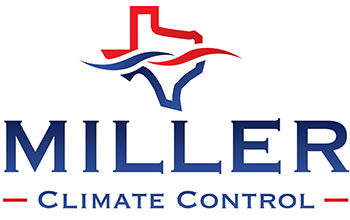
Purchasing your first home is exciting. You’re probably juggling a dozen things or more to ensure you’re making the right choice. We believe that gaining insight into your future HVAC system is essential. The property’s HVAC system represents a significant investment and source of potential long-term costs, so being thorough should be a top priority for first-time homebuyers.
In this guide, we’ll share seven tips for discovering all there is to know about a home’s heating and cooling setup. And if you want a more in-depth opinion from the experts, consider calling Miller Climate Control LLC. Our experienced team can share details about your options with industry insights you won’t find elsewhere.
1. Which Kind of HVAC System Does the Home Use?
Start by determining what kind of HVAC system the home includes. Furnaces tend to last longer compared to air conditioners, and some of the latest types of HVAC systems like heat pumps feature average life spans that are impressively long. Tracking down the make and specific model gives you a much better sense of how much it might cost in upkeep over time.
2. What Is the Current System’s Age?
It also helps to learn how old the HVAC system is when you're considering a new home. In general, HVAC systems tend to run for about 10-12 years. Knowing when it was installed helps you prepare for any needed servicing or considerations if it might break down. Older systems are more prone to problems, so budgeting for a replacement unit might be needed faster than expected.
3. Does the System Have a Warranty?
Don’t forget to look into whether the HVAC system is still under warranty. If it is, that's great news because it can help with maintenance costs. HVAC warranties often cover parts and labor, but specifics will vary. Don’t forget to look into any terms that seem confusing to make sure you fully understand your coverage and the likelihood of out-of-pocket costs.
4. Does the System Have a Documented Maintenance History?
Take a close look at the maintenance history of the HVAC system, if that information is accessible. This service history can demonstrate if the repair needs are high or how much upkeep was provided. Ask about records for key tasks such as changing the air filter, which means it enjoyed more regularly scheduled tune-ups.
5. Do You Know Its Energy Efficiency Ratings?
Purchasing a home with a heating and cooling system with strong energy efficiency isn’t just smart; it leads to smaller utility bills and a smaller environmental impact. Try and find the seasonal energy efficiency ratio (SEER) ratings for air conditioning and the annual fuel utilization efficiency (AFUE) for furnaces. Higher SEER ratings mean better cooling across the entire season, while higher AFUE ratings mean the fuel is efficiently converted into useable heat.
6. Have You Noticed Signs of Problems After Completing an Informal Inspection?
Even without the know-how of an HVAC technician, you can still take a moment to check out the HVAC system yourself. Look for signs of problems that haven't been mentioned by the seller. This can mean bizarre noises, unequal airflow and attempts to cover up any serious damage.
7. Have You Asked Your Local HVAC Professional?
If you're unsure about the condition of the HVAC system, it's wise to get input from certified HVAC technicians. They will be much more likely to catch things you might not, like leaking coolant, damage to the wiring or inefficient ductwork.
A Chat with Miller Climate Control LLC Helps Take the Stress Out of Your Home-Buying Journey
Selecting your first home ought to be exciting, and Miller Climate Control LLC will do everything possible to ensure yours is too. Reach out with us at 512-937-2001. We can discuss how our HVAC services help make this process smoother, giving you what you need to step into your new home with confidence.

